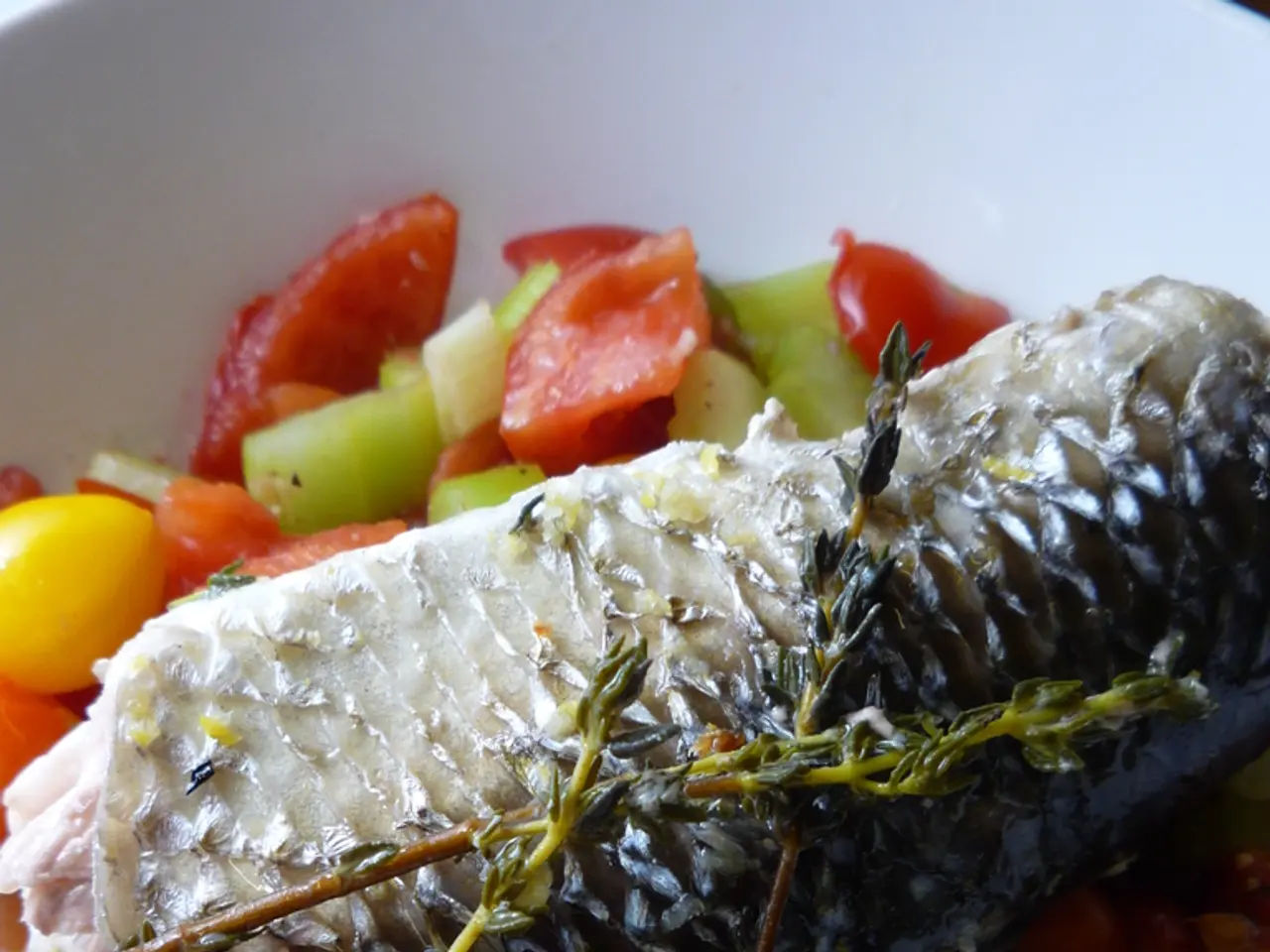"Advocating for savory flavors, the newly appointed minister supports eating meat"
The German Federal Ministry of Agriculture has made a surprising decision, choosing to support meat consumption, a move that is causing heated debates among citizens. This decision, which has seen meats such as chicken, beef, fish, and others return to the menu at ministry events, conflicts with the Federal Environment Agency's suggestion for consumers to eat less meat and animal products for the sake of sustainability and climate change.
The new Minister of Agriculture, Alois Rainer, has abolished the previous regulation, stating that he doesn't want to dictate what people should eat. However, this decision has sparked criticism from some citizens, with vegans and vegetarians expressing their disagreement. On the other hand, supporters argue that tolerance towards all dietary choices is the right way.
The German Federal Ministry's advisory body, the Scientific Advisory Board for Agricultural Policy, Nutrition and Consumer Health Protection (WBAE), has been actively recommending policies to reduce meat consumption and expand alternative proteins. The WBAE's stance aims at facilitating a transition toward more sustainable, diversified protein sources in Germany's food system.
The WBAE's report calls for stronger political leadership, public funding for innovation in alternative proteins, regulatory support for novel foods, and ending tax discrimination against plant-based alternatives. The report also highlights the positive health, environmental, economic, and animal welfare impacts of promoting alternatives to animal products.
This policy direction is expected to increase the availability and affordability of high-quality plant-based and cultured meat alternatives, improve consumer acceptance through hybrid products, and provide fortified alternatives to cover nutritional needs. Surveys suggest growing openness, especially among younger Germans, to cultured meat and other innovative substitutes, indicating social acceptance is increasing parallel to policy support.
The debate on food policies and sustainability is expected to continue in the future, with the actual political adoption of these recommendations remaining a key factor in determining the broader impact. As the conversation unfolds, it's clear that the decision to support meat consumption will have far-reaching implications for animal welfare, climate change, and environmental sustainability.
Comments on social media regarding the decision include "Progress was yesterday, today it's schnitzel" and "How sad." Some social media users question why there's a problem with serving meat alongside fruits and vegetables, while others express concern about the environmental impact of meat production.
As the government's decision to support meat consumption leads to further debates and discussions on food policies and sustainability, it's essential to consider the long-term effects on our planet and its inhabitants. The transition towards more sustainable, diversified protein sources is a complex issue, but one that demands our attention and action.
[1] WBAE (2021). Protein Strategy 2030: A Sustainable, Healthy and Affordable Food System for All. Retrieved from https://www.wbae.de/fileadmin/user_upload/downloads/WBAE_Protein_Strategy_2030_EN.pdf
[2] Mintel (2019). The Future of Food: The Rise of Alternative Proteins. Retrieved from https://www.mintel.com/content/dam/mintel-com/press-centre/reports/2019/may/the-future-of-food-the-rise-of-alternative-proteins.pdf
[3] European Commission (2019). Farm to Fork Strategy: A Fair, Healthy and Environmentally-friendly Food System. Retrieved from https://ec.europa.eu/info/sites/default/files/food-farm-to-fork-strategy_en.pdf
[4] FAO (2019). Livestock: Environmental Issues and Opportunities. Retrieved from http://www.fao.org/3/a-i7784e.pdf
[5] WWF (2019). The Future of Food: A WWF Report on the Global Food System. Retrieved from https://awsassets.panda.org/downloads/wwf_the_future_of_food_report_2019.pdf
- The German Federal Ministry's advisory body, the Scientific Advisory Board for Agricultural Policy, Nutrition and Consumer Health Protection (WBAE), has called for stronger political leadership and public funding for innovation in alternative proteins, as a necessary step towards a more sustainable, diversified protein source system in Germany.
- Supporters of the WBAE's stance argue that the promotion of plant-based and cultured meat alternatives, improved through hybrid products and fortified alternatives, can lead to a healthier, more environmentally-friendly, and economically viable food system.
- On social media, discussions about the German Federal Ministry's decision to support meat consumption have included various opinions, ranging from those advocating for a transition to more sustainable dietary choices to critics questioning why there's a problem with serving meat alongside fruits and vegetables, indicating that the public's stance on food and sustainability remains divided.








